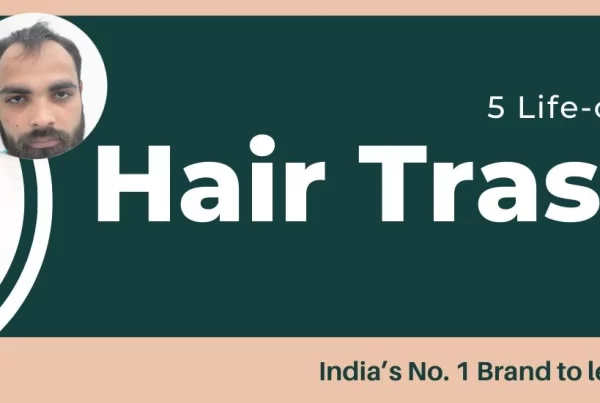
When it comes to hair transplants, quality doesn’t come cheap — and for good reason. Low-cost procedures may seem tempting, but the risks associated with subpar services can turn what seems like a bargain into a costly affair. How? Let’s understand this first.
Clinics, in effort to remain price competitive, reduce the input costs listed below:
- Utilizing less-experienced professionals or teams to cut costs.
- Choosing substandard consumables, punches, and tools.
- Maintaining hygiene standards below par.
- Providing limited assistance post-surgery.
- Investing less in patient support and professional behaviour.
- Offering no assurance in case of transplant results failure.
- Employing inexperienced doctors or, in some cases, none at all.
- Relying on outsourced, non-permanent teams.
Let’s delve into the critical factors that make a difference in your investment:
1. Skilled Professionals:
Cutting costs often means compromising on the expertise of the surgical team. Opting for semi-skilled hands may impact safety and the desired results. At Dr. Haror’s Wellness, our surgeons are not only qualified but also bring extensive experience to ensure a successful hair transplant journey.
2. In-House Trained Team:
A surgeon is only as good as their team. Our in-house technicians are well-trained, working seamlessly with our surgeons to achieve optimal results.
3. Latest Equipment:
A reputable hair transplant clinic should be equipped with the latest technology. Cutting corners on facilities can compromise emergency procedures and overall patient safety.
Choose Safety Over Cost:
The qualifications and experience of the surgeon play a pivotal role in the success of a hair transplant. At Dr. Haror’s Wellness, our surgeons are certified and experienced, ensuring a safe and effective procedure. We prioritise transparency, providing before-and-after photos of previous patients to instil confidence.
Hidden Costs of Cheap Hair Transplant:
Opting for a cheap procedure can lead to mental trauma, anxiety, and dissatisfaction if the results fall short. Redoing a hair transplant requires skilled hands and extends the recovery time, multiplying the overall cost.
Hygiene Matters:
Low hygiene standards increase the risk of post-surgical infection and delay recovery, adding an unmeasurable cost to the patient.
Professional Support:
The results of a hair transplant require a gestation period of 9-12 months, during which professional support is crucial. Dr. Haror’s Wellness ensures nonprofessional support, addressing any corrective gaps that may arise.
Conclusion:
At Dr. Haror’s Wellness, we offer affordable and reasonable hair transplant services without compromising on quality. Remember, being cheap might cost you more in the long run. Invest in your confidence wisely.





